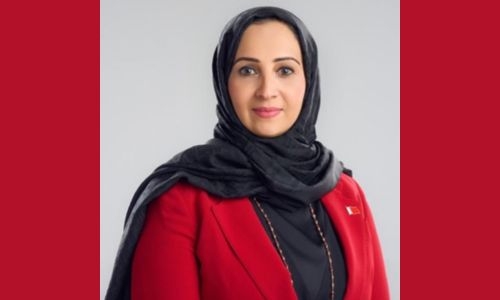Here's how to become a medical consultant in Bahrain
TDT | Manama
The Daily Tribune – www.newsofbahrain.com
Two years of practical experience is mandatory for granting a consultancy licence to physicians in Bahrain, confirmed the kingdom's Health Minister.
The progression from specialist to consultant is contingent upon field experience.
H.E. Dr. Jaleela bint AlSayed Jawad Hasan also revealed that graduates from first-degree programmes are eligible for such a licence.
However, graduates from second-degree programmes can obtain a specialist licence after one year of practice, followed by a consultant licence after four years in the same field.
Applications falling short of the established standards face rejection, the minister confirmed.
Advisory committee
Further outlining the procedures for licensing healthcare professionals and non-Bahraini doctors in the public and private sectors, the minister said that eligibility will be decided by an advisory committee, tasked with evaluating the qualifications of medical professionals.
What sets this system apart is its reliance on expert opinions from the advisory committee appointed by the Supreme Health Council.
They will delve into the depths of academic rigour and practical experience to grant a consultancy licence.
The committee examines the duration of study, academic performance, and the content of training programmes, ultimately assigning physicians into distinct tiers based on the level of certification attained.
These statements came in response to a parliamentary query, where the minister stressed steadfast dedication to adhering to the regulations set forth by the National Authority for the Regulation of Professions and Health Services.
Foreign degrees
The minister also mentioned that the authority here follows a thorough evaluation process for external certifications, including the scrutiny of training curricula and comparison with international standards.
Recognition of foreign university degrees follows the accreditation standards set by the Supreme Health Council as per Decision No. 23 of 2017.
For physicians with certifications outside established standards, each case undergoes individual review by the authority and is presented to the Advisory Committee for Medical Practitioners for consultation.
External certifications, she explained, undergo scrutiny by the advisory committee, which assesses the training curriculum alongside relevant expert committees.
This evaluation includes comparing the certification with those of neighbouring countries to ensure alignment.
Furthermore, the minister stressed the importance of verifying accredited training and years of experience.
This includes confirming the approval of the training institution in the country of origin and ensuring the availability of necessary training facilities.
Additionally, international accreditation is assured through its inclusion in the worldwide medical school directory.
Related Posts

